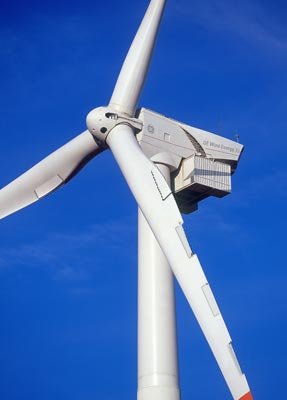Adaptive learning control for offshore windturbines
The trend with offshore wind turbines is to increase the rotor diameter as much as possible. The reason is that the foundation costs of offshore wind turbines amount to a large part of the total costs. Therefore designers want to increase the energy yield (which increases quadratically with the rotor diameter) per wind turbine as much as possible to reduce the costs
The STW project "Smart Design Technology for Reliable Smart Rotors to make Large Scale Wind Turbines
economically attractive (SMART-WIND)" will contribute to the development of offshore wind energy by investigating the control of fatigue loads and active damping of structural vibrational modes. The proposed way to go is the use of smart dynamic rotor control: every rotor blade will be controlled separately and the properties of each blade will be altered by making use of distributed control over the blade length. This will be possible by making use of "Smart" actuators and sensors.
In this project an innovative approach of model based robust controller design will be developed based on the strong past performance of the members of the DCSC. The development of system identification tools for robust controller design will be extended towards Linear Parameter Varying (LPV) systems. Further, this fundamental experience will be combined with the application expertise the DCSC has acquired in vibration reduction using "Smart" materials.

Project members:
dr.ir. J.W. van Wingerden (Jan-Willem), H.J. Bijl, MSc (Hildo), prof.dr.ir. M. Verhaegen (Michel)
Keywords:
Learning and adaptive control, Identification and estimation, Robotics and mechatronics, Wind energy
Sponsored by:
STW